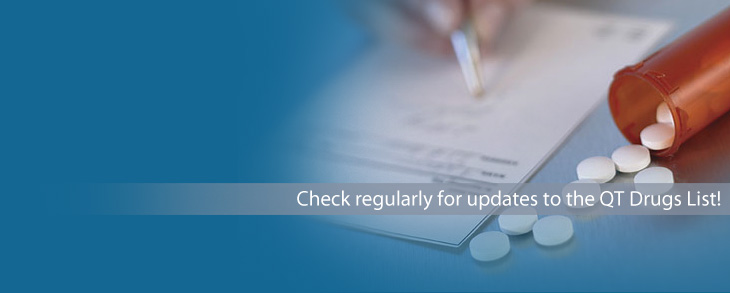QTc Risk Clinical Decision Support: A Primer For Healthcare Providers
SECTION 3: Medications with Known Risk for Prolonged QTc and TdP
The third education module in a series of four will focus on medications with known risk for prolonged QTc intervals and torsades de pointes (TdP).
At the conclusion of this module, you will be invited to take a short knowledge test to give you immediate feedback regarding your understanding of the provided material.
COVERED IN SECTION THREE
DRUG INDUCED SUDDEN DEATH:
This module begins with a discussion focusing on the many medications that have been removed from the market due to their association with QT prolongation and sudden cardiac death, including a discussion of the medications that are still on the market that have the side effect, owing to the fact that the benefit of using these drugs currently outweighs the risk.
THE MECHANISM OF ACTION OF DRUG-INDUCED PROLONGED QTc
The module goes on to explore the mechanism of drug-induced QTc and how drugs that can cause QT prolongation inhibit the IKr current which leads to delayed ventricular repolarization and then — when this is combined with other risk factors — can lead to severe QT prolongation and TdP.
CREDIBLEMEDS IS IN THE APPLE AND ANDROID APP STORES
Finally, the module discusses CredibleMeds as a comprehensive source for information about drug-induced QT prolongation, torsade de pointes and the features, uses, and benefits of the CredibleMeds app.





